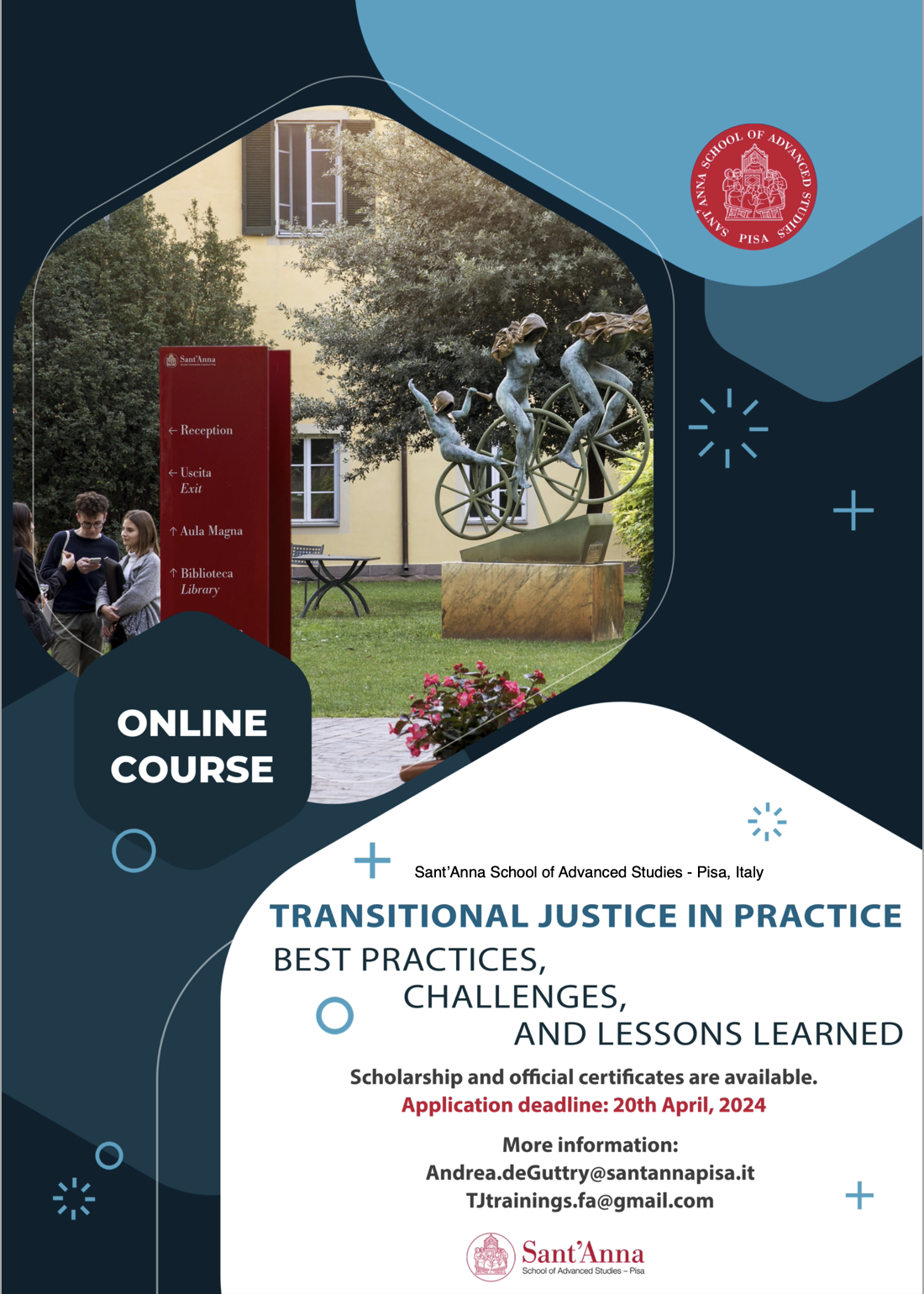Transitional Justice in Practice: Best Practices, Challenges, and Lessons Learned Online Course
- Area tematica Diritti umani, gestione dei conflitti, cooperazione allo sviluppo & migrazioni
- Sede Online
- Scadenza iscrizione 20.04.2024
- Periodo di svolgimento April - June 2024
- Ore formazione 20
We invite you to join the "Transitional Justice in Practice: Best Practices, Challenges, and Lessons Learned" Online Course, which is conducted entirely in Persian.
To learn more about the course, please watch our informative video, and to apply, please click here.

Course Description
The course "Transitional Justice in Practice: Best Practices, Challenges, and Lessons Learned" explores past cases of transitional justice which occurred in various parts of the world to identify their key features, focuses on inclusive approaches to transitional Justice with special attention to persons with disabilities, gender issues, and children, maps complexity and multidimensional aspects of transitional justice processes, identifies the relevant actors involved in transitional justice processes and their specific role, and finally it explains how to apply transitional justice processes to specific violations such as arbitrary deprivation of life, torture, persecution, and systematic discriminations
Course target
This course is designed for individuals with an interest in transitional justice, including lawyers, law students, and practitioners. It aims to educate and empower a new generation committed to effecting sustainable change and ending the cycle of violent conflicts, contributing to the establishment of lasting peace worldwide.
Training objectives
The primary training objectives of this course are to equip participants with the knowledge and skills necessary to professionally engage in the design and implementation of transitional justice programs. By the end of the course, participants will have gained the necessary knowledge and skills on how to professionally contribute to the design and implementation of transitional justice programs.
Teaching methods
The teaching methods include a variety of interactive approaches such as lectures, engaging discussions, case studies, and hands-on exercises. Participants will have the opportunity to learn from experienced instructors and collaborate with fellow students to enhance their learning experience.
Course programme
The cuorse program covers a wide range of topics related to translational justice, including inclusive approaches to transitional justice, multidimensional aspects of transitional justice processes, relevant actors involved in translational justice processes and their specific roles, application of transitional justice processes to specific violations, and real-world case studies. A detailed course schedule and specific topics will be provided upon enrollment.
How to apply
Enrollment in this course is determined on a "first come, first served" basis due to limited capacity. The deadline for registration is the 20th of April, 2024. Selected participants will receive notifications via email, and contact information can be found on the course poster. The link to apply is the following: https://docs.google.com/forms/d/e/1FAIpQLSdm7z7OXByFWsPhKptyfLQ1voCnVD6qoIfnFJrfnQWcE2Ob5w/viewform
Course fee
Free of charge.
Attendance certificate
Certificates will be awarded to participants who have attended at least 80% of the course sessions.
